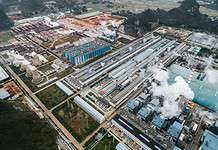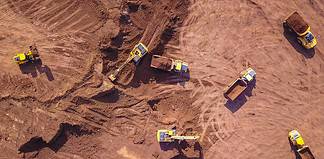FORTESCUE Metals has been dealt a blow in its long-running battle for third-party access to Rio Tinto’s Pilbara rail infrastructure.
On 8 February – almost six years after the dispute began – the Australian Competition Tribunal (ACT) ruled that Rio Tinto was not required to open up its Robe River and Hamersley rail lines to third-party users.
“It follows that the Tribunal does not have before it sufficient material to satisfy it that it would be uneconomical for anyone to develop an alternative facility to provide either the service provided by the Robe line or the service provided by the Hamersley line,” the decision stated.
Rio Tinto welcomed the verdict, with acting chief executive Paul Shannon calling it “great news”.
“Rio Tinto runs a highly efficient railway that is fully integrated with our port and mine operations,” he said.
“This would be severely hindered if third parties were allowed to run trains on our rail network, not to mention the knock-on negative effect on the Western Australian and national economies from creating such inefficiencies.”
Fortescue was “disappointed” but the company has not ruled out another appeal. A September 2012 High Court ruling required the ACT to make fresh decision on the 2008 decision by Federal Minster Wayne Swan; who declared the Hamersley and Robe railway lines open for third-party users for 20 years to 2028.
Fortescue emphasised that the decision would not affect the company’s iron ore operations and future expansion plans, which would utilise the company’s existing fully owned rail infrastructure.
Chief executive Nev Power said it was regrettable that the ACT did not see the merits of providing third-party access to this infrastructure to enhance competition and greater productivity.
“Fortescue will continue to provide third-party access to our own rail system and will continue to advocate for third-party access for all Pilbara rail infrastructure,” he said.
As BHP Billiton and Rio Tinto continue to ramp up their iron ore production in the Pilbara, both have refused third-party access to their railways, arguing that the lines are integral to their operations and that allowing other miners to use them would be uneconomic.
Advertisement












































